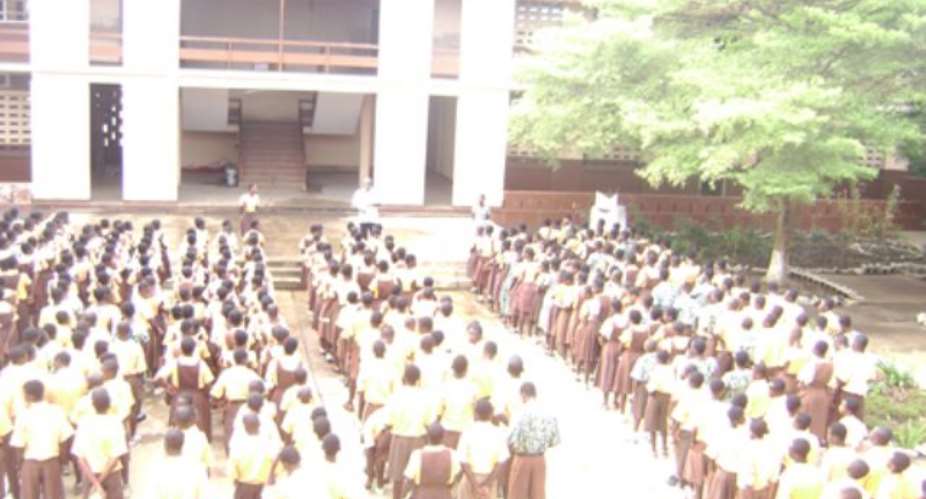In response to the letter issued by the Ghana Education Service (GES) seeking inputs from stakeholders in education on how best schools can reopen while reducing/stopping the spread of Covid-19, there have been a variety of wonderful proposals worthy of consideration.
Many have advocated for the provision of nose masks for all learners, alcohol-based hand sanitizers and water facilities for all schools, testing of learners and teachers before reopening and intermittent testing in order to isolate and treat infected learners. Others have proposed a gradual reopening of schools starting from SHS 3 and JHS 3 on pilot, halving the congested class and dormitory sizes to create room for physical distancing and the recruitment of more teachers to support the 320 days of constant teaching.
I wish to, in addition to the above-suggested proposals, draw the attention of the GES, teachers and other stakeholders to the pedagogical perspective which has unfortunately been overlooked. In other words, the pedagogy or teaching methodology a teacher employs in teaching can contribute to the spread of Covid-19 if school reopens.
The learner-centred approaches to teaching have proven to be the most effective. Some of these methods include field trips, debates, group discussions (small and large groups), project work, demonstrations and individualized methods of teaching. In each of the above methods, learners are actively involved in the learning process which explores their manipulative skills in the abundance of learning materials/resources. This has been the wheel on which the newly introduced Standards-Based Curriculum for Kindergarten to Primary 6 revolves.
The learner-centred approaches to teaching also require a learner-centred assessment techniques which are usually formative (assessment in the course of learning) than summative (assessment after a course of study) and demand that the teacher moves from learner to learner and/or group to group to assess their learning progress.
Reopening of schools at a time when Covid-19 is not entirely vanquished would prove very challenging to the teacher as regards the use of the appropriate methodology for the achievement of his/her lesson objectives. For instance, group work would provide a catalyst for the spread of the coronavirus if either a learner in the group or the teacher supervising has been infected. In demonstration lessons that require learners to practise after a teacher/ resource person has demonstrated a phenomena, some learning materials may be frequently handled by different people, increasing the risk of viral contamination. Again, marking of learners' exercises/class tests/examinations or moving round to supervise or assess learners work can also increase the risk of infection.
In spite of the above possible risks of infection from teachers' teaching methodologies, learning must still go on when school finally reopen. We must, therefore, learn how to live with the virus as suggested by Dr Tedros A. Ghebreyesus (WHO Director) and reechoed by the Minister of Health, Hon. Kwaku Agyemang Manu.
How then, can the teaching methodologies be tweaked or tinkered with to reduce/cut the spread of Covid-19 during classroom instruction? I do hereby, propose the following for consideration when school resumes.
- That the GES embark on an aggressive supply of teaching and Learning Materials (TLMs) for all schools to avoid multiple handling of same TLMs by learners. Where TLMs are inadequate, demonstration of a phenomenon should only be done by the teacher for learners to observe.
- That to ensure the safety of both learners and teachers, all forms of group work should be discouraged for now until the virus is finally defeated to make way for the enforcement of physical distancing among learners.
- That individualized forms of assessment should be used in place of group projects.
- That the GES provide teachers with disposable hand gloves to prevent possible contamination and infection when marking class exercises, tests and examinations.
It is my hope and that of many Ghanaian teachers, that the above proposals are considered in the final decision of a possible reopening of schools in addition to the observance of regular hand washing, physical distancing and the use of alcohol-based hand sanitizers.





 Dumsor: Don't rush to demand timetable; the problem may be temporary — Atik Moha...
Dumsor: Don't rush to demand timetable; the problem may be temporary — Atik Moha...
 Space X Starlink’s satellite broadband approved in Ghana — NCA
Space X Starlink’s satellite broadband approved in Ghana — NCA
 2024 election will be decided on the grounds of the economy; choice of running m...
2024 election will be decided on the grounds of the economy; choice of running m...
 Dumsor: We're demanding less; just give us a timetable — Kwesi Pratt to ECG
Dumsor: We're demanding less; just give us a timetable — Kwesi Pratt to ECG
 Do I have to apologise for doing my security work, I won’t – Simon Osei-Mensah r...
Do I have to apologise for doing my security work, I won’t – Simon Osei-Mensah r...
 All my businesses have collapsed under Akufo-Addo — NDC Central regional chair
All my businesses have collapsed under Akufo-Addo — NDC Central regional chair
 Military, Prison Officers clash in Bawku, three injured
Military, Prison Officers clash in Bawku, three injured
 GRA-SML contract: MFWA files RTI request demanding KPMG report
GRA-SML contract: MFWA files RTI request demanding KPMG report
 Court threatens to call second accused to testify if NDC's Ofosu Ampofo fails to...
Court threatens to call second accused to testify if NDC's Ofosu Ampofo fails to...
 Family accuses hospital of medical negligence, extortion in death of 17-year-old...
Family accuses hospital of medical negligence, extortion in death of 17-year-old...
